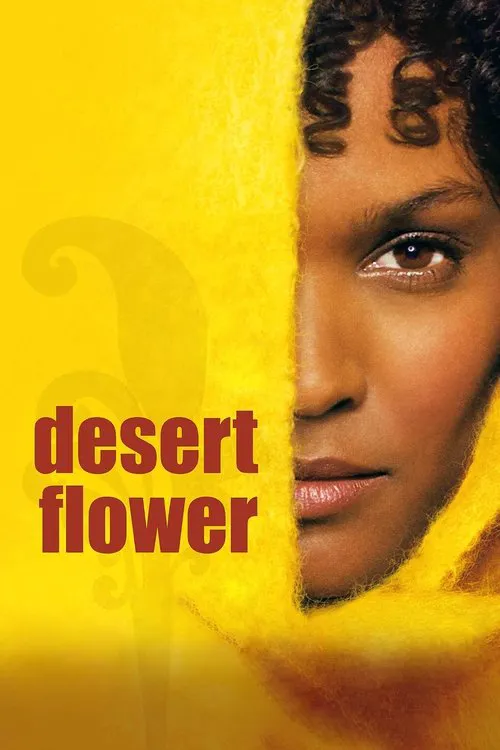Desert Flower

Plot
Desert Flower is a 2009 biographical drama film directed by Sherry Hormann, based on the autobiography of Waris Dirie. The film stars Liya Kebede and Billy Zane, and it tells the remarkable story of a young Somalian girl who rose from a life of poverty and violence to become a renowned model and an international advocate for women's rights. The film opens with a poignant portrayal of a traditional Somalian nomadic life, where young girls are expected to grow up to be good wives and mothers. Waris, played by Liya Kebede, is just a child when her family is forced to flee their land due to a severe drought. In the midst of the chaos, Waris's family is tricked into giving her in marriage to a much older man who is seeking a younger bride to bear him a son. Waris, still just a child, is shocked and horrified by the prospect of marriage and is only 13 years old when she is forced to undergo the brutal ritual of female genital mutilation (FGM) in a dingy, rundown hut. The film graphically depicts the pain, trauma, and long-term damage inflicted by FGM, which is still a prevalent practice in many parts of Africa. Waris's experience is not unique, and millions of girls are subjected to this cruel and unnecessary ritual every year. After being married to her older husband, Waris discovers a photograph of herself in a fashion magazine, modeling for a prominent couturier. Inspired by this image, Waris sees an opportunity to escape her miserable life and flees her homeland to pursue her dreams in Europe. In London, she meets Lisa, a kind-hearted photographer, played by Sally Hawkins, who becomes her friend and mentor. Lisa recognises Waris's potential and introduces her to a prominent modeling agency. Waris's striking features, including her striking face, long limbs, and elegant demeanor, immediately captivate the attention of the fashion industry. She begins to work as a model, and her unique persona soon catches the eye of a well-known photographer. As Waris's modeling career takes off, she is catapulted into a glamorous world of high fashion, red carpets, and luxurious lifestyles. However, she remains haunted by the memories of her traumatic past and struggles with feelings of loneliness and disconnection from her African roots. Despite her fame and fortune, Waris feels like a stranger in a foreign land, unsure of her identity and purpose. The film's narrative spans two decades, from the 1960s to the 1980s, as Waris evolves from a shy and awkward young girl to a confident and empowered woman. Along the way, she faces numerous challenges, including racism, sexism, and the complexities of her Somalian culture. Despite these obstacles, Waris perseveres and eventually becomes one of the most sought-after models of her generation. Waris's rise to fame is paralleled by her growing awareness of the issues affecting women in her native Somalia and beyond. She becomes increasingly politicised, advocating for women's rights and speaking out against the practice of FGM. In 1997, she accepts the role of Goodwill Ambassador for the United Nations Population Fund (UNFPA), using her platform to raise awareness about the plight of girls and women worldwide. Throughout the film, Waris's story is interwoven with that of her sister, Deqo, who remained behind in Somalia. The bond between the two sisters is deep and unbreakable, despite the distance and difficulties that separate them. Deqo's story is a poignant reminder of the human cost of FGM and the devastating impact it has on individuals and communities. Liya Kebede's powerful performance as Waris captures the complexity and resilience of this extraordinary woman. Kebede's portrayal is both intimate and authentic, conveying the pain, the struggle, and the triumph of Waris's journey. The film's script, adapted from Waris Dirie's autobiography, provides a detailed and compelling portrayal of a woman who has overcome extraordinary obstacles to achieve her dreams and make a difference in the world. Desert Flower is a testament to the strength and courage of women like Waris who have fought against the odds to create a life of purpose and meaning. This film is a tribute to their resilience and determination, and a reminder that even in the darkest of times, there is always hope for a better future.
Reviews
Recommendations




